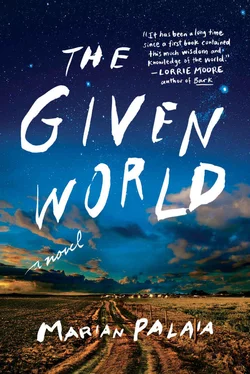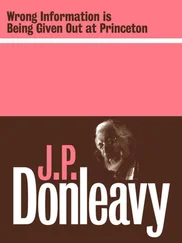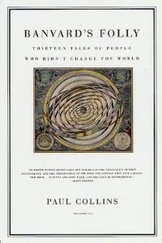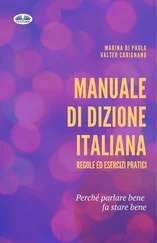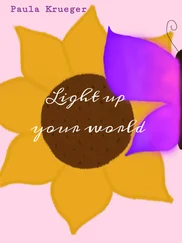• • •
In Missoula I found a job at a gas station where the mechanic, Leo, offered to teach me how to work on cars. I worked on other people’s, and found my own — bought it off a guy who came by on his way to the train station, needing the fare for San Diego, as he allowed that he did not intend to spend one more goddamn winter in goddamn Montana freezing his fucking ass off. It was September. The car needed the kind of work I could do. I gave him a hundred thirty dollars, two weeks’ pay.
After about a month at the station, Leo caught me talking to myself and I realized I wasn’t always aware I was doing it. I told him I felt a little crazy. I didn’t tell him about my brother or Darrell or the kid, because at the time a connection had not occurred to me, but I told him about the drugs, as blaming those seemed logical — and probably, at least partially, was.
Leo started watching me around the office and in the service bays where we worked and out at the pumps. He squinted at me. “I don’t see anything the matter with you.”
“It doesn’t show,” I said. “It’s up here.” I thumped myself on the side of the head with the heel of my hand, hard; so hard my head rocked.
He took a step back. “Man, did that hurt?”
“Yeah.” And it did, a little. “But pain doesn’t bother me. It’s weird.”
“You’re weird,” he said.
“I told you.”
My car was seven years old and looked like it had been through a war. It was about five different shades of black, and there was a hole in the floor behind the driver’s seat big enough to put both feet through. The top didn’t meet the windshield tight by about an inch, so whatever weather they were having on the outside, I was pretty much having on the inside too.
The interior smelled like a pile of wet leaves, and sometimes as if those leaves were covering a tiny decomposing animal. The canvas had a couple of cuts in it that I patched up with duct tape, and the wheel wells had been widened and Bondo’d, it looked like, by a four-year-old with some spare Play-Doh. Leo and I bolted a piece of sheet metal over the hole in the backseat and then one day, to surprise me, he installed some Astroturf on the floor back there, in place of real carpeting.
It was a 289, eight-cylinder, three-speed. The first thing Leo taught me to do was tune it up. Back in those days, you could actually get inside the engine of a car and see what you were doing. I could reach every spark plug without the extension on the ratchet, and get enough torque on it to pull them out without any help and without banging my knuckles up more than just a Band-Aid’s worth. I was proud of my bruised knuckles, the pattern of tiny black cuts on my fingers, the grease I could never quite get out from under my nails. I was practically addicted to the hand cleaner, scooped out of the can in great gobs, like shortening, and rubbed around until it was turned by body heat to something almost fluid, but not quite. I loved all the liquid stuff, the smell of the gas and how woozy it made me, the pink transmission fluid, the honey color of new oil. I learned how to gap spark plugs, calibrate brakes, set timing, change tires, aim headlights, adjust carburetors. I learned how to listen to a motor. I knew how to get enough miles out of a worn-out clutch to get you home. I carried screwdrivers and a rag in my back pockets, a tire gauge in the pocket of my uniform shirt, a pencil behind my ear. I learned how to find the slow leak in a tire, dunking it in a galvanized tub of water, watching for the telltale bubbles. I’d circle the spot with chalk, patch it, fill the tire with air and roll it across the lot, casual but steady, so it wouldn’t fall over.
Sometimes I’d take the tow truck out to charge dead batteries or change flats. I got used to getting to a place and having some rancher come out of the house and look at me and ask what I was doing there, as if me and my tow truck had perhaps taken a wrong turn at his driveway. If he was particularly difficult, I would offer to send someone else out — a guy — in a day or two. They would usually let me get my tools out then, but I could see they didn’t like it a bit — what the world was coming to. They thought we were all on drugs, all the kids. I wasn’t, really, except every once in a while when Leo and I would smoke a joint of Mexican pot, and then, if it was slow, he’d watch me while I got out the rubbing compound and tried to get down to a layer of something on my car that might actually be mistaken for factory paint.
I’d quit the mescaline when I found out I was pregnant, and after the baby was born it no longer seemed like such a brilliant idea or grand escape. He came six weeks early, and even after they let me take him home I could hide him inside my jacket like a little trick rabbit, and no one would even know he was there. He stayed behind when I left. I couldn’t take him because I was too afraid of what I might do, like lose him; set him down somewhere and forget. I was not so out of it as to believe I was even remotely steady enough to take care of a baby. Both my parents, by some miracle I was sure I’d never fully comprehend, seemed to understand.
When I got stoned I would think about my childhood, which always came back to me in black and white and a barely distinguishable range of gray. We had dogs, and farm animals of the regular kind: chickens, cows, once in a while a few goats. I had a big brother who tried against some pretty ferocious odds to teach me about the world and what was in it. A mother who, against similar odds, kept me steady as long as she could, kept me from becoming a human rocket-propelled grenade and launching myself into the atmosphere, where I’d explode into tiny pieces and rain down on the house and the yard while she watched from behind the screen door: another one gone — the last one, except…
And my dad, who, no matter what, seemed always on the verge of smiling, like he was telling himself jokes, and if you were lucky — if you asked with the right words — he’d tell them to you too.
Our days: Getting up before the sun every morning and going to bed halfway through Bonanza at night. 4-H. The bus to school, the bus back. A long way between us and everyone else. A lot of alone time. And a war on TV, brought to you by Nabisco.
I didn’t know — because I never thought it through — that American boys had not been fighting in Vietnam since the beginning of time, or that no one had ever watched a war on TV before. I would watch and look for a face I recognized among the living, but then came the ones they were loading onto the helicopters: the ones that didn’t move no matter how long the camera stayed on them; the ones I maybe should have known better than to think about as hard as I did. But I didn’t know not to do that. You could tell under the tarps and the blankets that some of them had been blown clear apart.
Boys my age were too young for the war, but older brothers had been going and coming back in shifts, quietly over the years, and no one said very much about it. When they came home, they went back out to work the ranches, and I’d see them on the street or at the feed store and try to match their faces to the ones I’d seen on television. There was a sameness to those faces — something I was too young to identify, but it was etched there, and no one else had it.
I was thirteen when they let us know they couldn’t find Mick. When the letter came in the mail, my mother wandered around the house for weeks carrying it and talking to herself, saying pretty much the same thing over and over. For a long time, among all the other voices, hers was the one I heard most distinctly, at the most random times, saying, “I thought they were supposed to come and tell you in person.”
It was as if our house were a birdcage someone had thrown a sheet over and forgotten, in the morning — every morning — to take off. I don’t remember any talking, let alone laughing, or making anyone feel better about anything, though I know there must have been trying. The quiet was blinding and deafening. Even the barn cats stopped freaking out when anyone came close. They perched in the windows at the top of the barn and watched us come and go, as though they knew those were our final days, and anytime now we’d pack up and leave. But I was the only one who did.
Читать дальше
